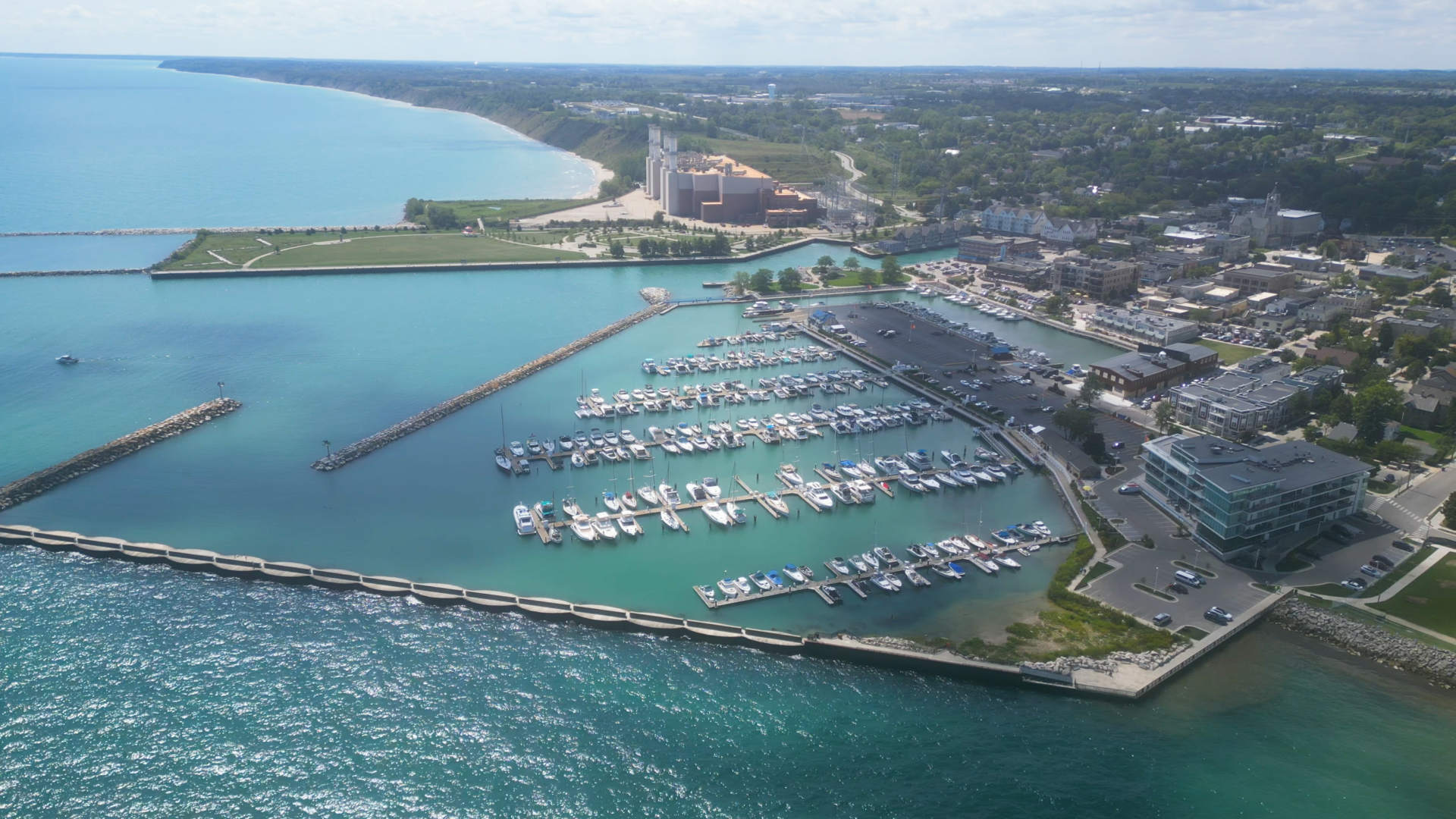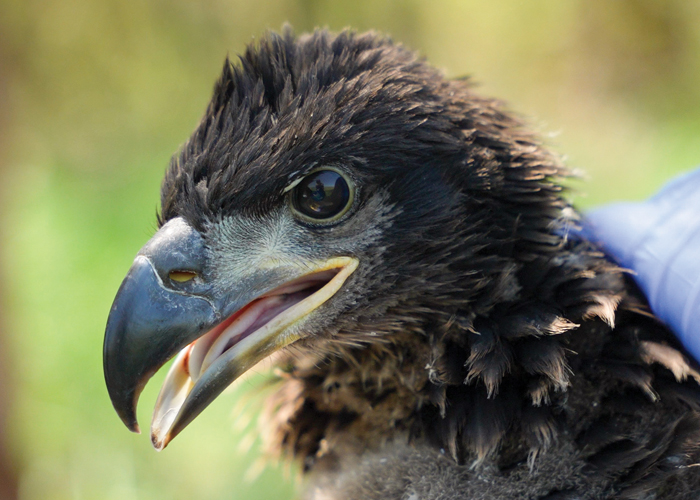When she was a junior at West High School in Madison, Wis., Kathy Kline took a trip out West, and it completely changed her life.
As part of a young scholars program funded by the National Science Foundation, Kline and a group of fellow students spent five weeks doing research on the Gibbon River in Yellowstone Park. The group did the same sorts of things actual research scientists do: collecting samples in the field and analyzing them in the lab, writing reports and presenting findings at a conference.
It’s the same sort of experience Kline now gets the chance to create for others as the University of Wisconsin Sea Grant’s new part-time outreach education specialist. She began in the position last month.
“That Yellowstone experience really excited me about science and led me to pursue a degree in biology,” said Kline, 38. “I’m looking forward to developing experiences for students that will have the same effect on them.”
Her name’s certainly familiar to longtime UW Sea Grant followers—she’s been with the program since 2004, as a science writer, the co-author of the popular book “People of the Sturgeon” and, for the last few years, a part-time general outreach specialist focusing on topics like raising rip current awareness, a sustainable seafood campaign, and, of course, sturgeon.
“We are very pleased that Kathy has taken on this new role with Wisconsin Sea Grant.,” said Phil Moy, UW Sea Grant’s assistant director for research. “She brings with her a new perspective and energy that will work well with our current and new program initiatives.”
Now, in her latest career progression, she’ll helm UW Sea Grant’s education efforts, which for several decades were directed by Jim Lubner, who retired in early 2011. Lubner may be best known for his work on water safety and the annual Sturgeon Bowl academic competition in Milwaukee. Kline may take the program in some new directions.
New national guidelines for science, technology,
engineering and math (STEM) education in grades K-12 are expected to be approved by the state of Wisconsin by early next year, and those will likely serve as a framework for Kline’s efforts. Kline will also be front and center in implementing UW Sea Grant Director Jim Hurley’s plans to enhance the experience of UW Sea Grant-supported graduate students.
“We’d like to provide our graduate students with outreach opportunities so that they can learn how to engage with students and the public about their Sea Grant research,” said Kline. “Research isn’t just for researchers. Understanding science and how it affects our lives is important for everyone, and we’d like our graduate students to have the opportunity to learn how to communicate their research findings to non-researchers.”
The role of education is evolving at the National Sea Grant level as well. For the first time, the organization’s national strategic plan has paired education with workforce development in its own focus area. That’s likely to place an added emphasis on career development for all students. Kline thinks that pairing graduate students with younger students could create the same kind of synergy that once sparked her love of science.
“We’re hoping that could really ignite something,” Kline said. “Graduate students are just beginning their careers, and perhaps younger students might be able to relate to them more easily and picture themselves moving into a science-related field.”
Kline is actually a former Sea Grant graduate student herself. In 2000, she was a student writer for the popular “Earthwatch Radio” series, an experience that led her to apply for a position with New Hampshire’s Sea Grant Program, where she worked prior to returning to Wisconsin.
“I didn’t know anything about Sea Grant before I started working here as a graduate student, and I didn’t know much about the Great Lakes, either,” said Kline. “As I wrote for ‘Earthwatch’ and learned more about Sea Grant, I realized what a powerful mission it has—research, outreach and education all working together to sustain our Great Lakes resources. It was my grad student experience that introduced me to Sea Grant, and I feel so fortunate to have been involved with it ever since.”





